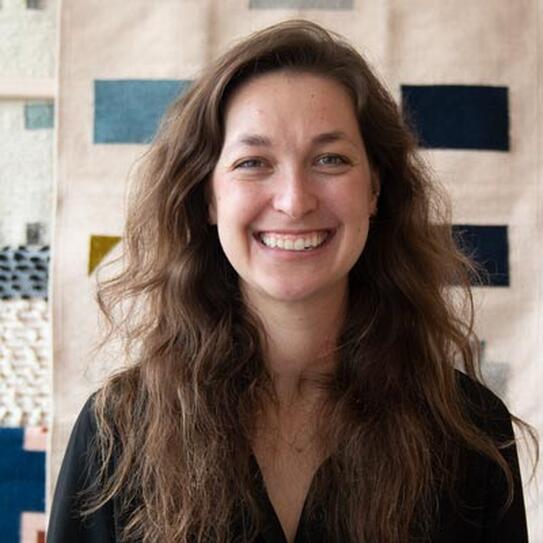Margaret Knowles

What brought you to business school? Why did you choose Columbia Business School?
I had been at my current company, MINNA, for a few years; we are a social enterprise start-up that creates ethically made home textiles. As the company grew, and I grew in my role, I wanted to really get a handle on the more advanced concepts of assessing and running a business. Columbia’s Executive MBA program was the only program I applied to! I knew it was for me the moment I heard about it. I was so excited to be learning about business from amazing professors, right at the heart of the business world.
What was your first impression as a student?
The first thing I noticed was how friendly everyone was — from my fellow classmates to the administrators to the professors, CBS has been an incredibly supportive environment for me. Everyone is there to help you succeed. I think this program attracts a specific type of person who gets joy from connecting others, sharing resources, and seeing their friends and classmates thrive.
How do you balance between work, school, and your personal life?
Well, the pandemic has helped, I’ll say that…. But it hasn’t been easy, though I do have a few little rituals that help keep me balanced. For example, I use working out as a break between my day job and my evening homework. This creates a nice moment of pause that’s just for me. I am also thankful to have a very supportive partner who is an extraordinary chef, and she’s worked extremely hard to keep me fed (critical) during this program.
What’s your favorite part of the EMBA experience so far?
It's the people. I don’t know how Columbia does it, but each of my classmates is truly an amazing person. The openness, kindness, and generosity of spirit I’ve witnessed in this program has been unparalleled. It also helps that we’re all here to learn, both the material and from each other. We all truly value one another’s opinions, even if they differ from our own. Since we’re in such an open and honest environment, we have a safe space where we’re able to debate, bounce ideas off of one another, and talk through important concepts.
What was the most challenging part of the program?
Not feeling like there’s enough time to take advantage of all the amazing resources CBS has to offer. When you’re working full time, going to school, trying to chart your career path, and trying to bond with all your friends, it’s hard to fit extra-curriculars in. However, in my third semester, I was able to join the Student Leadership Board of the Stanford C. Bernstein Center for Leadership + Ethics. Getting to meet and work closely with students outside of my cluster has been amazing, and I only wish I had more time to do more of it!
How have your professional skills translated into success at business school?
I really value having some career experience behind me before I joined CBS. When I’m in almost any class, it really allows me a frame of reference to relate the material back to, which I think helps immensely in learning and absorbing.
Which faculty member(s) and/or courses influenced you the most, and how?
Georgia Levenson-Keohane, Social Entrepreneurship in the 21st Century — This course was a broad overview of the ways that business and the social sector can overlap, and it really opened my eyes to all the possibilities there are out there for someone whose aim is to use business to foster social change. I’ve always known I have a particular skillset and that my ultimate aim was to create impact, but this course gave me some tangible ways to bridge the two.
Honorable mentions go to Amir Ziv, Accounting; Kairong Xiao, Corporate Finance; and David Guetta, Business Analytics for making ostensibly dry subjects come alive.
What are your long-term career goals?
Thanks to CBS, I now know that I can use the skills that I have to make an impact in the world. My aim is to use my organizational, logistical, and quantitative skills to aid organizations that are trying to create social change — particularly in the realms of income inequality and gender and race disparity.
What’s your top advice for new students?
Though it’s an overwhelming two years, really try to take time to explore all the resources that Columbia and this program have to offer. Although you’ll never explore it all, there’s something — a club, a program, a board, a TA position — for everyone. Building a community with people who have overlapping interests with mine has been a really rewarding part of my experience.
What will you take with you from Columbia Business School?
First and foremost, the friendships. The relationships you make at CBS are forged in the fire of late nights doing group projects and a night out when you’ve finally made it through that block week.
Second, the confidence. I feel like I truly have the best education on so many facets of business. I can enter any room and know that I’m meant to be there.